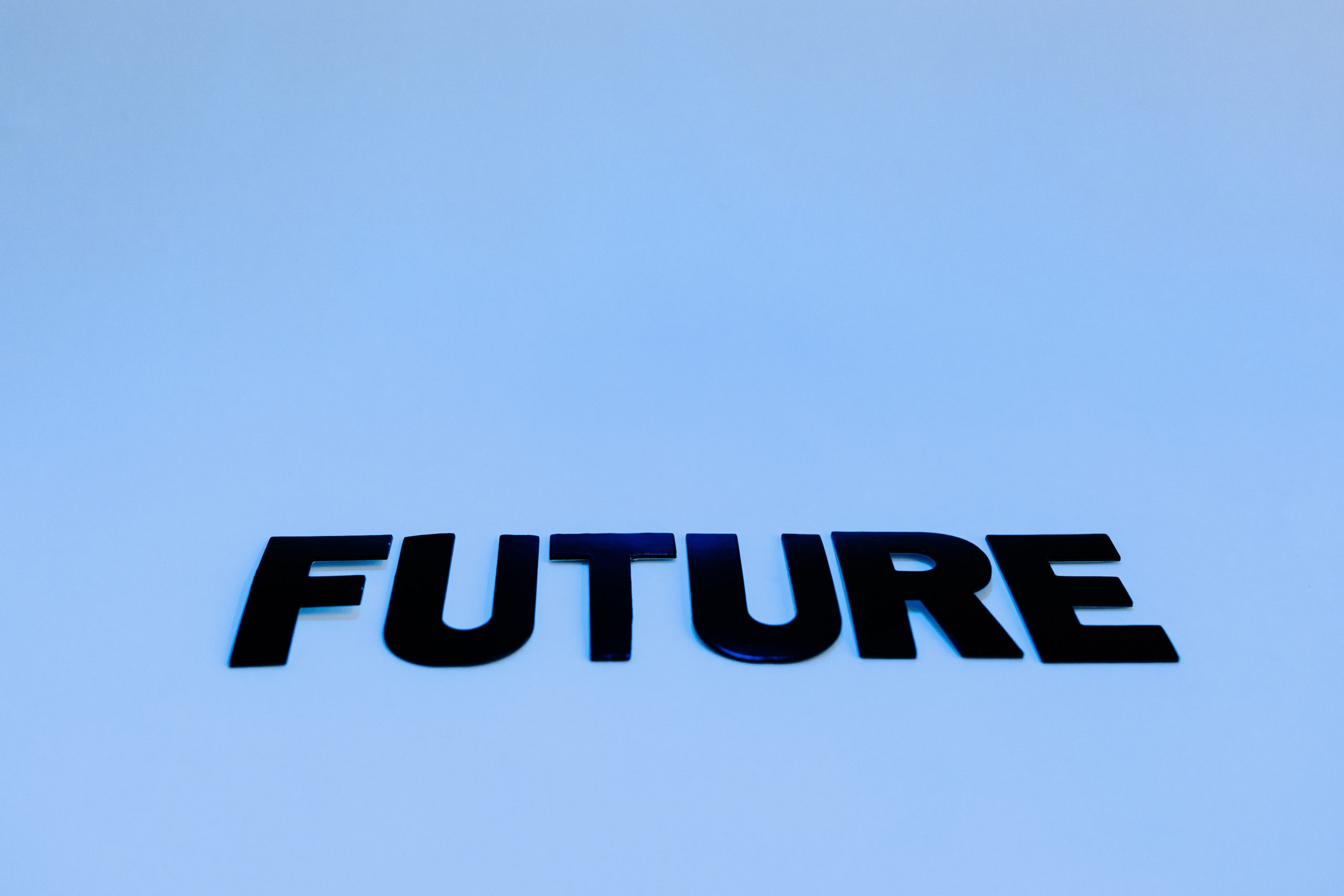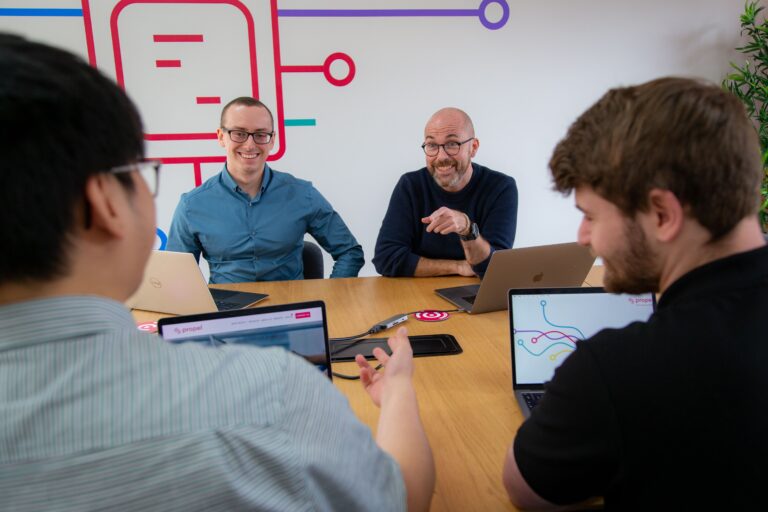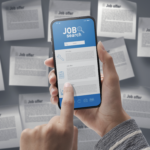The new Slack State of Work Report finds that companies are missing opportunities to unlock new levels of employee productivity with time-saving technologies, hybrid work, and talent development. The report, based on a global survey of more than 18,000 desk workers – including 2,000 in the UK, found only 23% of companies are investing in technology to improve productivity and efficiency (21% in the UK), and just 27% of companies are using AI tools to help do so.
Many organisations are stuck in old ways of working and antiquated approaches to driving productivity:
- Employees say they are spending on average 32% of their time on performative work that doesn’t contribute to company and team goals but is done to appear productive.
- This is also true for 30% of UK employees
- A third of executives are tracking activity metrics (e.g. hours worked, emails sent) among their employees, but only 15% of employees believe doing so helps their productivity.
The report uncovers three trends defining modern work and driving employee productivity today:
- New technologies, such as AI and automation, are largely not implemented.
- Office work and design are being redefined in the age of hybrid work.
- Employee engagement and talent development also directly impact productivity.
AI and automation hold the keys to employee productivity — but the masses haven’t caught on
AI and automation capabilities have the potential to streamline and optimise repetitive, time-consuming tasks, allowing employees to focus on higher-value, strategic work:
- Those who have adopted AI at their company are 90% more likely to report higher levels of productivity than those who have not adopted AI.
- UK workers who adopt AI, compared with those who have not adopted AI, are 51% more likely to report higher levels of productivity.
- Most (77%) employees, including 78% in the UK, say that being able to automate routine tasks, such as getting expense report approvals, would improve their productivity.
- Those who use automations at work estimate saving an average of 3.6 hours a week – this equates to at minimum one working month a year* given back to each employee to focus on meaningful work.
- In the UK, workers save on average 3.3 hours a week.
However, 60% of employees say their company has not incorporated AI tools to support their productivity. And 43% say that their team has not created automations to make their work processes easier or more efficient.
“AI and automation will radically transform the way we work. Yet, as our research has shown, most organisations today are unable to leverage the full potential of these technologies to rekindle their stagnant productivity levels,” explains Pip White, SVP EMEA, Slack. “Accelerating work through automation can save employees up to an entire working month per year, which is time they can spend on deeper, more meaningful work instead. By automating the tedious, mundane and time-consuming processes, organisations have a huge opportunity to help employees work smarter, more efficiently and, ultimately, more productively.”
Effective hybrid work means empowering employees with reimagined office spaces and new ways to collaborate
In the age of hybrid work, employees are looking for flexibility and an environment that fosters collaboration and inclusivity:
- More than half (52%) say that flexible work schedules is one of the best ways for their employer to support their productivity.
- Employees say flexible location (36%), unique workplace benefits or office improvements, such as more meeting rooms and quiet areas (32%), and encouraging people to bring their whole selves to work (25%) also enhance productivity.
- More than a third (35%) of employees cited coordinating or collaborating with other teams as a key challenge faced by their immediate team. In fact, a majority (80%) say that having the right technology to collaborate from anywhere (share knowledge, drive projects forward, etc.) would improve their productivity.
However, only a few executives are using modern strategies to improve how employees work with each other – wherever they are:
- Just 21% of executives are making changes to the physical office, such as quiet libraries, collaboration spaces, and larger social lounges.
- Only 19% are encouraging asynchronous work, for example when sharing status updates. More than a third (35%) of employees cite spending too much time in meetings as a top productivity challenge. In fact, employees say that 43% of their meetings could be eliminated with no real adverse consequences.
Productivity and wellness are not mutually exclusive — to deliver results, employees must be well
Job satisfaction, engagement, and mental wellness are also top factors that contribute to productivity, so it’s crucial for leaders to consider these areas as part of how they redefine and drive productivity:
- A majority (82%) of employees say that feeling happy and engaged with their organisation would improve their productivity.
- This is the same for just over 8 in 10 UK workers (83%)
- Employers need to also prioritise wellness, as 53% of employees – and 56% in the UK – say that they feel pressure to respond to messages quickly, even if they’re sent after standard working hours.
Managers play a key role in shaping work culture and need to be armed with people development skills, tools to drive efficiency and manage teams, and team wellness support. However, they face challenges in creating a healthy and productive environment:
- Forty-three percent of people managers cite helping their team stay motivated as a top challenge. This is compounded by the fact that one-third (33%) of employees say that staying aligned on overall company goals and direction is a hurdle to productivity.
- Also, more than a third (36%) identify spending too much time on tasks like meetings and emails, and the same number say helping their team have a good work-life balance, as additional challenges.
“By leveraging Salesforce technology, including Slack as the primary form of communication among account teams, the Spotify Advertising team has been able to build automated workflows and strengthen collaboration, leading to a 40% increase in productivity across the team by cutting down on meetings and email traffic,” said Daniel Walsh, Global Head of Business Strategy and Operations at Spotify.
“‘All for one, and one for all’ is one of our operating principles at Duolingo. We work hard to foster an environment of collaboration, and only encourage competition if it’s playful and in service of a collective goal,” said Molly Lindsay, Chief People Officer at Duolingo. “We believe that intangibles like motivation, fulfilment and passion are key contributors to our efficiency and output.”
More information
Dive deeper into the Slack State of Work Report here
Research methodology
Salesforce’s Slack conducted this global survey in partnership with Qualtrics between February 24 and March 21, 2023. The total sample size was 18,149 desk workers and executives across sectors in the following countries: United States (3,115), Australia (2,034), France (2,039), Germany (2,032), United Kingdom (2,027), India (2,039), Singapore (1,341), Japan (1,658), and South Korea (1,864).
*(3.6 hours on average saved using automation x 52 weeks in one year) / 8-hour working day = 23.4 days or about one month of time saved on average from automation per employee each year.









